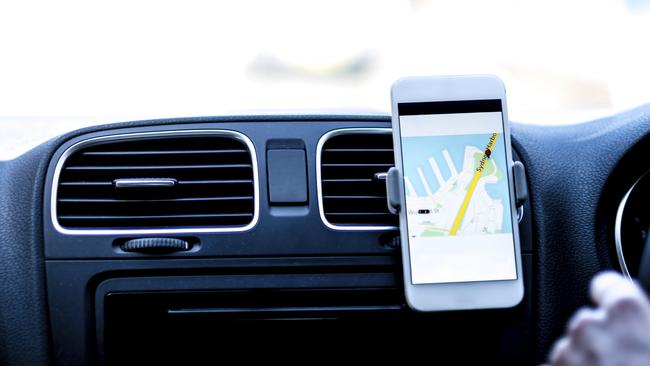Australians earning money via the sharing economy warned to meet their tax obligations
Millions of Australians are raking in income from the sharing economy but can get stung badly at tax time. There are ways to avoid it.
Saver HQ
Don't miss out on the headlines from Saver HQ. Followed categories will be added to My News.
Millions of Australians are raking in income from the sharing economy but they are being warned to understand the tax implications.
Latest figures from Treasury estimate that in 2017 the sharing economy was worth a massive $15.7 billion, and more than 10.8 million Australians were predicted to earn some form of income this way.
Popular sharing economy income streams include those working for food delivery services Deliveroo and Uber Eats, ride-sharing firms such as Uber and Ola, or earning money from being an Airbnb host.
The Australian Tax Office has warned people they need to understand that tax applies when earning income through these methods.
“The sharing economy provides opportunities for people to make money in a variety of different ways,” an ATO spokeswoman said.
“If you are making money through the sharing economy it is important to consider how income tax and goods and services tax (GST) applies to your earnings.”

People who think they can get away with not paying tax on their earnings should think again.
The ATO has sophisticated data-matching processes that examine more than 650 million pieces of data at tax time. This includes drilling down into sharing economy platforms.
Deliveroo is one of Australia’s most well-known food delivery services, with more than 8000 riders nationally using its platform as an income stream.
MORE: What you need to tell the tax office if you’ve had a big life change
MORE: How to get your tax return back faster
MORE: Smart ways to spend your tax return
Deliveroo spokeswoman Joanne Woo said the majority of its riders worked about 15 hours per week to supplement another income, and earned about $22 per hour.
“It’s really important within the gig economy that independent contractors have their own ABN and potentially manage their own business,” she said.
“Do put money aside for tax. They can spread their tax payments across the year instead of getting hit with one large tax bill at the end of the financial year.”
Deliveroo has joined forces with booking software firm Solo & Smart to make meeting tax obligations easier.
The app helps self-employed people nominate a percentage of income to be saved automatically for tax.
Ms Woo said it made it more of a “set-and-forget process”.
“If you continue to set aside a percentage of your income as you earn, when it comes to the end of financial year and you are putting in your tax returns, you’ve already set aside that amount of money so you don’t get hit with a huge tax bill.”
SHARING ECONOMY TAX TIPS
• Declare what you earn.
• Record keeping is key.
• Income tax applies to sharing economy income.
• Set aside money for tax or pre-pay just in case.
Originally published as Australians earning money via the sharing economy warned to meet their tax obligations


